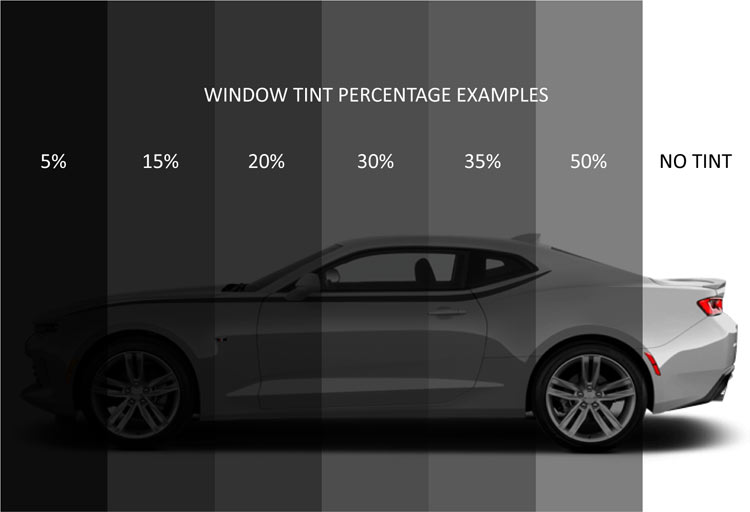How Window Tinting Can Improve Privacy and Reduce Heat in Your Car
How Window Tinting Can Improve Privacy and Reduce Heat in Your Car
Blog Article
Window Tinting Regulations: What You Need to Know Before Tinting Your Car
Understanding home window tinting regulations is crucial for any kind of lorry owner thinking about tinting their vehicle. As you consider enhancing your lorry's appearance and functionality, it is important to understand not only the lawful implications but likewise the practical considerations that come with selecting the appropriate tint.
Importance of Comprehending Color Rules
Understanding window tinting legislations is critical for automobile proprietors to make sure conformity with state regulations. These laws dictate the permissible degrees of color darkness and reflectivity, which can dramatically vary from one jurisdiction to an additional. Falling short to abide by these regulations can result in penalties, required elimination of the color, and prospective difficulties throughout automobile examinations.
Moreover, understanding these laws aids automobile proprietors make informed decisions concerning their tinting alternatives. Various kinds of window films give numerous advantages, such as UV security, heat denial, and glow reduction. Nevertheless, without understanding of the lawful restrictions, automobile proprietors take the chance of selecting items that might eventually result in legal problems.
In addition, understanding of tinting legislations fosters a safer driving atmosphere. window tinting. Excessively dark tints can impair exposure, boosting the threat of mishaps, especially at night or in damaging climate condition. Police additionally use these guidelines to guarantee roadway security, making compliance not simply a legal responsibility but an individual responsibility
State-Specific Tint Laws
Each state in the U.S. has actually established its own specific regulations relating to window tinting, mirroring a diverse array of criteria and requirements. These laws can vary significantly, affecting how car owners approach installment and conformity. Some states allow darker tints on rear windows while enforcing strict limitations on front-side home windows.
In addition, guidelines usually specify permitted color products and colors. Certain states prohibit reflective colors entirely, while others might permit them to a limited degree. In addition, some jurisdictions mandate that cars with colored windows display a sticker suggesting conformity with state laws, supplying a clear identification for regulation enforcement.
Enforcement of these legislations likewise differs; some states are much more positive, carrying out random checks, while others depend on complaints or noticeable infractions to start enforcement. Car owners ought to be mindful that failing to abide with state-specific color policies can lead to fines, mandatory elimination of prohibited tints, or both.

Lawful Color Percentages
Identifying the legal tint percentages is crucial for car owners looking for to abide by state regulations. Each state has specific legislations governing just how much light should go through the windows of a car, which is revealed as a portion called Noticeable Light Transmission (VLT) This portion differs dramatically throughout states and can depend upon the sort of home window-- front side, back side, and windshield.
For example, some states permit as little as 20% VLT on front side windows, while others may permit approximately 50%. Windscreen tinting is commonly much more restricted, with lots of jurisdictions permitting just a slim band of color on top of the windscreen. In comparison, rear home windows usually have much more lax guidelines, with some states permitting darker colors.
It is necessary for car proprietors to acquaint themselves with their local regulations to avoid possible legal concerns. This consists of understanding how VLT is gauged, as it can differ based on the sort of window film made use of. Staying educated about these regulations makes sure conformity and promotes secure driving conditions for both the automobile proprietor and others when driving.
Consequences of Non-Compliance
Falling short to stick to home window tinting laws can lead to considerable effects for vehicle owners. Policemans educated to identify illegal tint levels may release penalties, which can differ by territory yet typically vary from moderate to considerable quantities.

Insurance coverage business may likewise enforce penalties for non-compliance, as illegal adjustments can be deemed a violation of plan terms. This can impact protection prices or bring about complications in insurance claims if an event happens.
Eventually, you could try these out the repercussions of non-compliance prolong beyond immediate punitive damages; they can affect a chauffeur's insurance coverage rates, legal standing, and overall automobile value, emphasizing the significance of adhering to neighborhood home window tinting policies.
Tips for Choosing Tinting Options
When choosing window tinting options,Comprehending the implications of non-compliance highlights the importance of making educated selections. Acquaint on your own with your state's specific legislations relating to color darkness and reflectivity. Each state has unique guidelines that determine the permissible limitations, so guarantee you remain within these standards to avoid charges.
Second of all, consider the sort of tint material. Choices consist of colored, metalized, and ceramic colors, each offering varying levels of heat rejection, UV security, and sturdiness. Ceramic tints give superior warm resistance without conflicting with electronic tools, making them a prominent choice.
In addition, analyze your main objective for tinting. If you look for enhanced privacy, choose darker colors; nonetheless, bear in mind that this may influence visibility in the evening. Conversely, if glare decrease and UV security are your primary worries, lighter colors might be adequate.
Lastly, talk to an expert installer that is educated concerning local guidelines and can suggest top notch materials suited to your demands (window tinting). Taking these aspects into account will ensure you make a knowledgeable choice, ultimately enhancing both your vehicle's looks and performance
Final Thought
In conclusion, experience with window tinting laws is important prior to applying tint to a vehicle. Each state enforces details guidelines regarding visible light transmission percentages, particularly for front-side home windows and windscreens. Non-compliance can lead to substantial charges, including penalties and obligatory elimination of non-conforming tint. By comprehending legal needs and choosing appropriate color materials, car proprietors can accomplish aesthetic improvement while continuing to be certified with appropriate laws. Adherence to click here for more these standards ensures both safety and complete satisfaction.
Recognizing window tinting laws is vital for any type of car proprietor taking into consideration tinting their car.Understanding window tinting regulations is crucial for vehicle owners to guarantee compliance with state regulations. Some states allow darker colors on rear windows while enforcing rigorous limitations on front-side windows.
In click now contrast, back windows normally have a lot more lax policies, with some states permitting darker tints. (window tinting)
In final thought, experience with window tinting laws is essential prior to using tint to an automobile.
Report this page